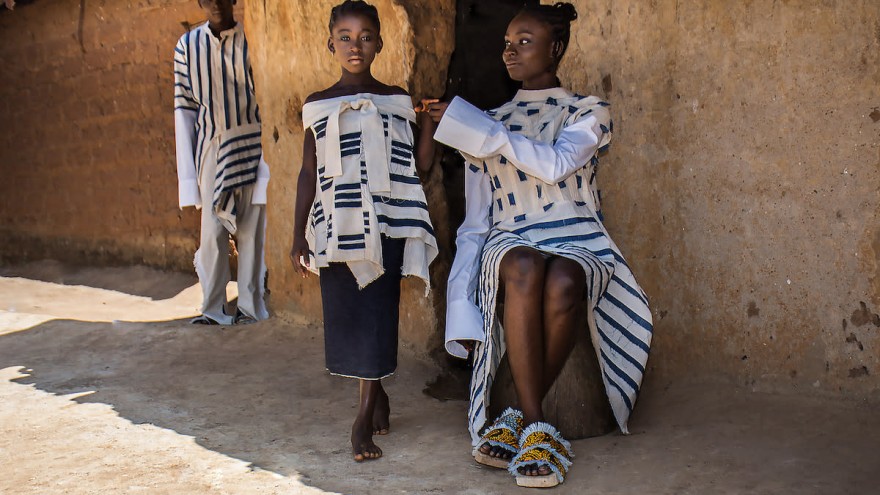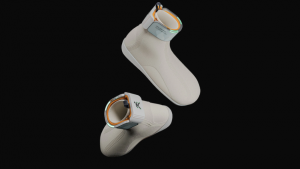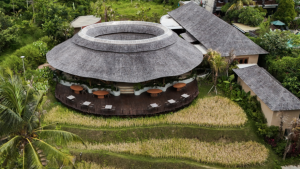So says Nkwo Onwuka, founder and Creative Director of Nigerian artisanal clothing brand NKWO Official, and a pioneer of sustainable fashion on the continent. On 15 August 2024 at Workshop17 at the V&A Waterfront, the designer will headline Africa Textile Talks, an educational journey into the heart of sustainable textiles, slow fashion and design.
The Abuja-based designer has earned international accolades for her work towards textile waste reduction and the preservation of traditional craft skills - including being named as a Fashion Impact Fund’s Conscious Fashion Campaign honoree, and the winner of the CNMI Sustainable Fashion Awards for Emerging Designer in 2022.
We spoke to Onwuka about the challenges facing the African textile industry, how the Global North has impacted local sustainability, and the role of traditional textile practices.
You are the keynote speaker for the upcoming Africa Textile Talks 2024. Tell us a bit about what attendees can expect from your presentation.
I have named my presentation 'The Last Square Loom'. Without giving too much away, the loom serves as a metaphor for the restrictions we impose on ourselves or that have been imposed on us and how we need to break out of these confines to build up our communities and ensure the preservation of our culture and heritage.
Can you share a bit about your background and how you ended up working in sustainable fashion?
I am a self-taught fashion designer who grew up in a very resourceful household. My mother was a seamstress who taught me how to sew clothes for my dolls using the offcuts from her cutting table. My siblings and I made toys from empty Cornflakes boxes or anything else we could find, and we also spent a great deal of time outdoors riding our bicycles through the park or on nature trails through the woods.
I went on to get a degree in Psychology, but I never stopped making clothes and this led to me starting a brand that was a grownup version of the life I knew as a child.
How has working with traditional Nigerian textile practices influenced your approach to fashion?
When I moved back to Nigeria in 2015, I spent a lot of time in local craft markets and visiting communities of textile crafts specialists. I found many of the practitioners were the last in their line of craft and it was really important for these skills to be preserved. I also found that due to our inadequate waste management systems, there were piles and piles of textile waste (from our clothing manufacturing and used clothing from the Global North) going to landfill or being incinerated.
I saw an opportunity to bridge the gap between textile waste reduction and traditional craft skill preservation. By using waste as a resource, I invented a new African textile called Dakala cloth. I have also launched a system of reverse retail called TRANSFORMABLES where the customer 'buys' the collection by sending in their old jeans or cotton shirts to be made into their choice of piece.
What are the biggest challenges facing the textile industry right now?
Speaking from my own experience, accessibility. That cuts across several areas like the sourcing of raw materials and the infrastructure needed to produce at scale; locating and being able to reach communities of artisans; and the fact our local textile industry has been decimated by the importation of cheap fabrics, including the used clothing that comes from the Global North.
Secondly, there is the legislation and the different quota systems that have been imposed on us. When Nigeria joined the WTO in 1995, in accordance with the rules, we had to remove any protection of the local textile industry, which had a devastating effect. Several East African countries also kicked against the foreign used clothing being dumped on them because it undermined efforts to develop our own industries. However, the Office of the US Trade Representative threatened to withdraw AGOA (Africa Growth & Opportunity Act) meaning certain products will no longer have access to American markets with low tariffs. Continuing to take the aid (that is clearly not working for us) means our textile industry will continue to struggle in the future.
What do you think are the most important steps the fashion industry can take to become more sustainable, particularly in Africa?
For the most part, the fashion industry in Africa is 'sustainable' by default. Many of the challenges we face have been imposed on us by the Global North. However, the onus is now on us to innovate our way out of a problem we did not create. By working together we can develop workable solutions that build up our communities and protect the environment.
What advice would you give to other fashion designers who want to incorporate sustainable practices into their businesses?
Don’t be intimidated but start by deciding what their 'sustainability' will be. Make small changes at a time so that it doesn't feel overwhelming. Do right, be honest, and work towards creating meaningful change for the people, the planet or both.
Book your ticket for the Africa Textile Talks to hear Onwuka’s presentation here https://www.quicket.co.za/events/263025-africa-textile-talks-2024/#/
READ MORE







